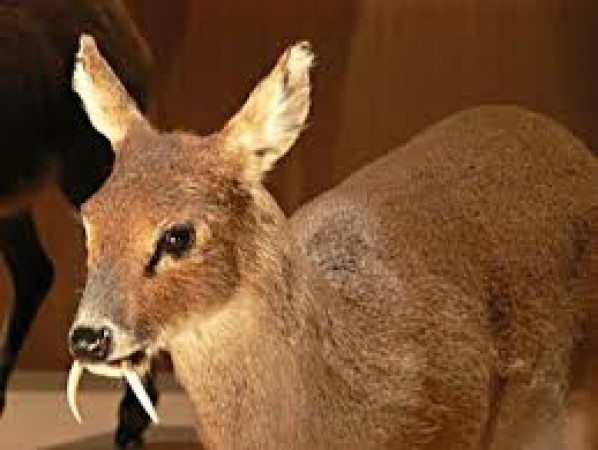
Musk is one of those fascinating substances that has captivated human interest for centuries. Found inside a specific type of deer, musk has a rich history and a variety of uses, especially in the perfume industry. But what exactly is musk, and why is it so valued? Let's dive into the world of musk to uncover its secrets.
Musk is a natural substance that is secreted by the musk gland, located near the abdomen of certain species of deer, particularly the male musk deer. This gland produces a strong-smelling secretion that the deer uses to mark its territory and attract mates.
There are several species of musk deer, primarily found in Asia. The most notable ones include the Siberian musk deer, the Himalayan musk deer, and the Chinese forest musk deer. These animals are small, elusive, and highly prized for their musk.
Musk deer are typically found in the mountainous regions of Asia, including the Himalayas, Siberia, and parts of China and Mongolia. They prefer dense forest habitats and are well-adapted to cold environments.
The primary component of musk is muscone, a complex organic compound. Muscone gives musk its distinctive, penetrating aroma, which is often described as earthy, woody, and somewhat animalistic. Besides muscone, musk also contains a variety of other compounds that contribute to its unique scent profile.
Due to ethical concerns and the high cost of natural musk, synthetic musk compounds have been developed. These synthetic versions attempt to replicate the aroma of natural musk without the need for harvesting it from deer. Popular synthetic musks include musk ketone and galaxolide.
Musk has been used since ancient times. Civilizations such as the Egyptians, Greeks, and Romans valued it for its fragrance and medicinal properties. It was often used in perfumes, as well as in traditional medicines to treat a variety of ailments.
In traditional Chinese and Ayurvedic medicine, musk was believed to have potent therapeutic properties. It was used to treat conditions like heart disease, nervous disorders, and respiratory issues.
Today, musk remains a crucial ingredient in the perfume industry. Its ability to fix and enhance other scents makes it invaluable. High-end perfumes often contain musk, which adds depth and longevity to the fragrance.
Beyond perfumes, musk is also found in various cosmetics and personal care products. It is used in lotions, creams, and deodorants to provide a lingering scent and enhance the product's overall appeal.
Musk's rich, soothing scent makes it a popular choice in aromatherapy. It is believed to promote relaxation, reduce stress, and improve mood. Essential oils and incense containing musk are commonly used in meditation and relaxation practices.
The hunting of musk deer for their glands has led to significant population declines, pushing some species towards endangerment. This has raised considerable ethical and conservation concerns.
Many countries have implemented strict regulations to protect musk deer. International agreements like CITES (Convention on International Trade in Endangered Species of Wild Fauna and Flora) aim to regulate and monitor the trade of musk to ensure it does not threaten the species' survival.
The development of synthetic musk and alternative sources has been a positive step towards reducing the reliance on natural musk. Ethical sourcing and sustainable practices are increasingly important in the industry.
As technology advances, synthetic musk compounds are becoming more sophisticated, providing a viable alternative to natural musk. These innovations are likely to continue, offering more sustainable and ethical options for the fragrance industry.
Consumers are becoming more aware of the ethical implications of their purchases. This trend is driving the demand for cruelty-free and environmentally friendly products, encouraging the industry to adopt more sustainable practices.
Ongoing conservation efforts are critical to protecting musk deer populations. Organizations and governments are working together to ensure the survival of these species, balancing ecological needs with human interests.
Musk is one of the most expensive natural products in the world. At times, it has been worth more than its weight in gold due to its rarity and demand.
Musk has made its way into various aspects of culture, from literature to luxury branding. It symbolizes opulence, mystery, and allure, making it a favorite motif in storytelling and marketing.
Throughout history, musk has been surrounded by myths and legends. It was often considered a magical substance, with tales of its mystical properties and otherworldly origins. Musk is a captivating substance with a rich history and a complex present. From its origins in the musk deer to its modern uses in perfumes and cosmetics, it continues to be a valued commodity. However, the ethical and environmental concerns surrounding its production highlight the need for sustainable and humane practices. As we look to the future, the balance between tradition and innovation will shape the ongoing story of musk.
Parenting Tips: How should a mother-daughter relationship be?
Discover the Optimal Age for Motherhood to Address Challenges Faced by Older Women
How Brotherhood Strengthens Bonds: How to celebrate World Brother's Day 2024